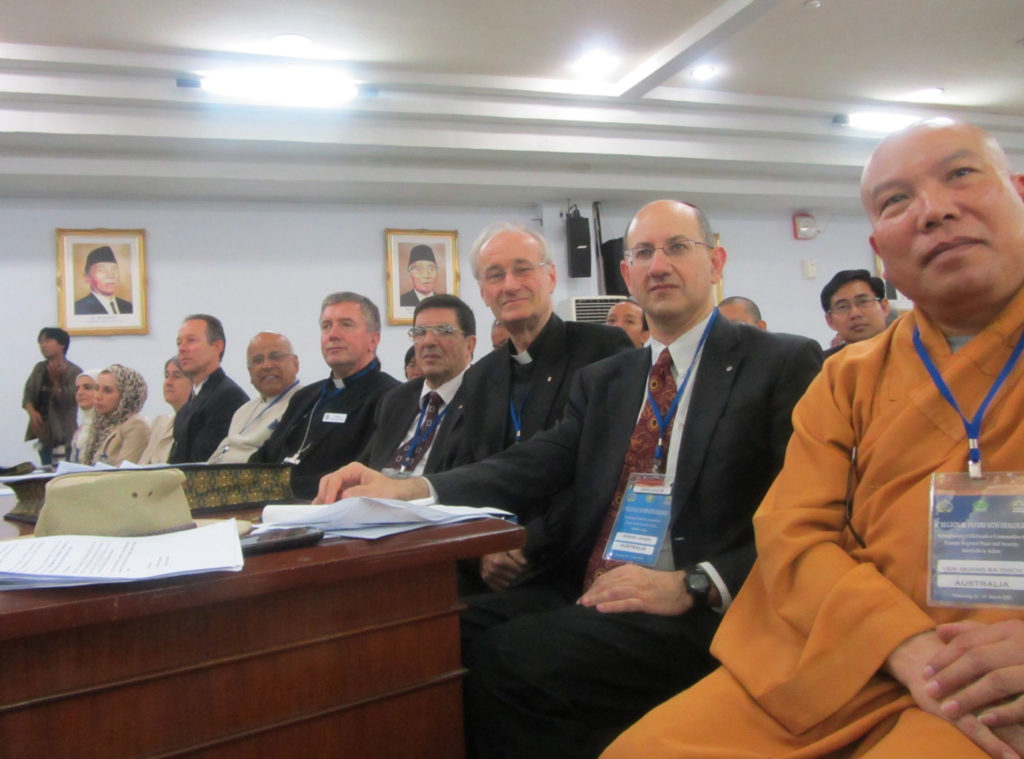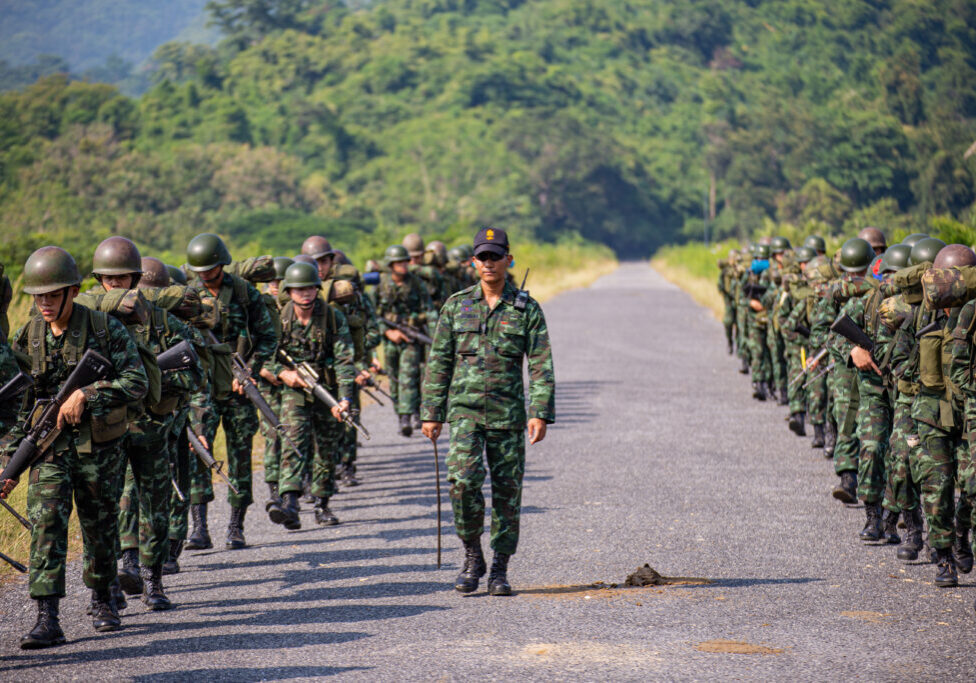Australia/Israel Review
The Last Word: RID-ing against Intolerance
Mar 27, 2012 | Jeremy Jones

Jeremy Jones
A visit to Semarang, the largest city in Central Java, is in many ways an assault on the senses. The humidity, with searing heat and blustery winds, is unavoidable, as are the blinding colours and the food which comes in two varieties – syrupy sweet or hot and spicy.
My recent trip, to participate as an Australian delegate to the 6th Asia/Pacific Regional Interfaith Dialogue (RID), included assaults, but welcome ones, on two other senses.
The first was on the sense of hearing, which came in response to two sets of stimuli. Wherever we went, we heard beautiful music and singing, with one highlight a Catholic priest concluding our visit to an imposing cathedral with the words “now a track from my latest album” followed by a classy saxophone and singing performance of Amazing Grace.
But the more pertinent use of the sense of hearing was to listen – to listen to impressive formal presentations, reports of challenges and successes, the cross-pollination and mutual empowerment of interfaith champions from Asia and the Pacific, and in the many one-on-one interactions between delegates.
We not only learnt of religious leadership helping heal the wounds of religious conflict, but heard about it from people on the front lines of dialogue and collaboration. With discussion taking place at mosques, churches and Buddhist, Hindu and Confucian temples, politicians, diplomats, scholars, religious leaders, journalists and others had many experiential learning opportunities.
As one of three Jewish participants in the conference, and the most visibly and vocally identifiable Jew, I fielded many probing questions on everything from conversion, kashrut, interpretations of Isaiah and Jewish-Muslim dialogue, to Zionism, prospects for a peaceful and just future in the Middle East, Iran’s threat to the Sunni world and the plight of Christians in an Arab world in turmoil.
As a People of Australia Ambassador, I was also asked many questions on the way Australian multiculturalism operates in reality as opposed to theory, particularly with regards to religious diversity.
It is worth noting that my colleagues in the Australian delegation, which was led in unique style by the Hon. Tim Fischer and assisted by an impressive, first-class team from the Department of Foreign Affairs, were all exemplary representatives of Australian civil society.
A team of Catholics, Protestants, Muslims, an Orthodox Christian, a Buddhist, a Hindu and a Jew worked closely together, exchanged ideas and made consistently high quality contributions.
Much of my work was devoted to my role as rapporteur to one of the three working groups and as one of the two-person sub-group of the committee drafting the Conference Declaration.
The text of that Declaration, endorsed by the representatives of the 13 states which actively participated, is in itself testament to the amazing strides made in regional cooperation since the first Dialogue, back in 2004.
It is of interest that the preference of the Dialogue, as emphasised in the programme, was to act independently of, but in cooperation with, the United Nations and other inter-governmental movements.
Further, while no existing interfaith organisations are formally tied in to the RID processes, it is intended that RID delegates will both learn from, and contribute to, significant international networks. This is evidence that the final “sense” which was assaulted in Semarang was the sense of responsibility.
Unlike in the earlier Dialogues, the delegates did not make requests of others, we set benchmarks for ourselves. There was no sense of asking governments to intervene or be the major providers of solutions, but there were creative suggestions of where and when governments could facilitate the most inspired of programs.
There will be many worthwhile outcomes of the networking in Semarang, including the valuable suggestions for the conduct of future interfaith meetings in this region and beyond.
It was an honour and privilege, as a Jew and as an Australian, to be there.
Tags: Asia






